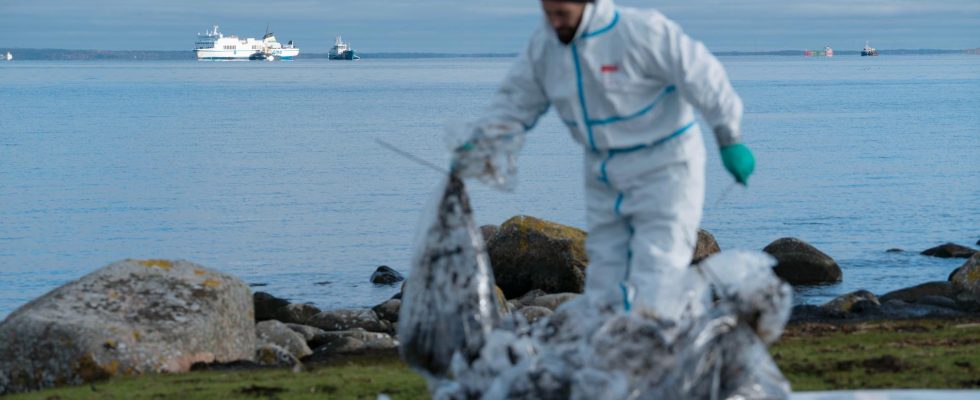Save the article
The bill for the oil spill off the coast of Blekinge will be expensive – and many may be entitled to compensation.
In principle, TT-Line may have to pay for the disruption, according to Jonas Ebbesson, professor of environmental law.
The legal starting point is crystal clear – the costs incurred in connection with the oil spill must be borne by the shipping company.
– It will be responsible for paying for the damage caused by the spill and also for reasonable recovery measures, i.e. measures to clean and sanitize the coast and measures taken to prevent damage, says Jonas Ebbesson at Stockholm University.
Also volunteers
There is a long list of parties who may be entitled to damages. It’s about municipalities and the coastguard who have paid for the clean-up work, but also property owners with lake plots, provided they can show that the oil has led to a decrease in value.
Under certain circumstances, even non-profit organizations, which were responsible for disaster relief aimed at birds and game, could receive damages. But then they have to show that their work was part of a collective recovery effort.
– The non-profit efforts are very important. If they have coordinated and anchored the work with the coast guard and the municipalities, I can imagine that they too can demand compensation. It is not out of the question, says Jonas Ebbesson.
“Are there maximum limits”
TT: Will taxpayers have to pay for something?
– It is too early to answer. There are certain maximum limits linked to how big the vessel is and how it is insured. But the claim for damages could land in the tens of millions that the company has to pay and it will, no doubt.
Jonas Ebbesson can think of two possible scenarios that could limit the liability for damages for TT-Line. Firstly, if the Swedish state “kept itself” and did not mark the foundation on charts, and secondly:
– If the coast guard has ordered the ship to move, and that the move in itself has meant additional emissions that could have been avoided.
